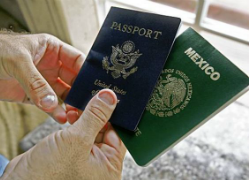Earlier this month, the Nevada Supreme Court became only the second US court to recognize its consular obligations under international law articulated by the International Court of Justice. Yes, that’s right; Nevada’s high court responded to the ICJ’s call in Avena and Other Mexican Nationals to review certain cases for prejudice stemming from violations of foreign nationals’ consular rights. This excites me not only because I am an advocate for the progressive development of international law, which this certainly is, but also because I am a Native Nevadan. It’s always nice to see when my state gets it right.
Background.
After a swath of Mexican nationals were sentenced to death in the United States, Mexico brought a claim to the International Court of Justice (ICJ) in 2003 contending that many of these individuals had been sentenced without having been informed of their right to meet with a Mexican consular official. Having the opportunity to meet with a consular official after being accused of a serious crime in a foreign country is a vital right enshrined in Article 36 of the Vienna Convention on Consular Rights. This right is so important because consular officials can help a national bridge cultural and language misunderstandings, as well as by conducting their own investigations and, if necessary, intervening in a national’s case.
United States Responds.

(SF Gate)
Responding to the ICJ’s 2004 ruling, the United States did two things.[1. See U.S. Strategy for Responding to ICJ’s Avena Decision, 99 Am. J. Int’l L. 489 (2005).] First, in late February 2005, President George W. Bush sent a memo to Attorney General Alberto Gonzales stating that the US would discharge its international obligations by having state courts review the cases based on comity. Ignoring for the moment that the President cannot require state courts to do this, this is not exactly what the ICJ required. In this regard, comity merely gives effect to another court’s decision based on one court’s discretionary determination that another court’s decision is worthy of enforcement. Under a comity analysis, a state court could decline to reexamine these cases. The ICJ, however, expected action.
Second, in early March 2005, the Bush Administration issued a statement saying that the US remained committed to international law and reaffirmed that state courts will review the disputed cases, but that the US resents the international court stepping in to review domestic criminal matters. Consequently, the US withdrew from the Vienna Convention on Consular Relations’ Optional Protocol on Dispute Resolution, meaning that the ICJ no longer has compulsory jurisdiction over consular disputes involving the United States.
In 2008, the US Supreme Court weighed in on the President’s memo and American consular obligations in light of the ICJ’s judgment. In Medellín v. Texas, the Court concluded that the ICJ did not preempt state procedural rules barring prisoners from raising consular rights violations in a habeas corpus petition.[2. 552 U.S. 491, 498-99 (2008).] Justice Stevens, however, in his concurrence chastised Texas for embroiling the US in diplomatic controversy and encouraged states to voluntarily comply with the ICJ ruling.[3. Id. at 536 (Stevens, J., concurring).] Consequently, relief for the 51 Mexican nationals on death row depends on the discretion of state courts. For most of the 51, this is not a bright prospect.
Back to Nevada.

(Wild Nature)
The facts of this case are brutal: Carlos Gutierrez subjected his toddler daughter to a pattern of abuse that culminated in her death and hid her body in a remote valley. He was charged with first degree murder and pleaded no contest. A three-judge panel subsequently sentenced him to death. Interestingly, his first appeal did not mention his consular rights.[4. Gutierrez v. Nevada, 920 P.2d 987 (Nev. 1996).]
Mr. Gutierrez, however, is one of the named Mexican nationals on death row that Mexico identified in the Avena case. In light of this, the Nevada Supreme Court reconsidered his case. In the opinion, the Court agreed with Justice Stevens’ concurrence and reviewed Mr. Gutierrez’ case for potential prejudice. Indeed, the Court concluded there very likely was prejudice. First, the nearest Mexican Consulate asserted that, had they been notified, they would have helped Gutierrez with legal and language barriers. Second, and most telling given that Mr. Gutierrez was relatively uneducated and spoke little English, the original trial was marred by allegations of procedural problems. The official translator later admitted to lying about his education and certification, and there were concerns about the accuracy of his translation. Ultimately, the Court concluded it did not have sufficient information to determine prejudice and remanded to the trial court for an evidentiary hearing.
Although the Nevada Supreme Court ultimately reached the right result, it did so in a less robust way than I would have liked. The US Supreme Court acknowledged that “International law is part of [United States] law.”[5. Paquete Habana, 175 U.S. 677, 700 (1900).] The Supremacy Clause itself incorporates treaties into federal law, which in turn supersedes conflicting state laws[6. U.S. Const. art. VI, cl. 2; United States v. Pink, 315 U.S. 203, 230 (1945).] and US law are presumed to comply with international law.[7. See Murray v. Schooner Charming Betsy, 6 U.S. 64, 118 (1804) (Marshall, C.J.).] Therefore, the ICJ’s interpretation of the Vienna Consular Convention is binding on American courts and should not have wrestled its way through the Executive bureaucracy and the federal courts. But unfortunately we don’t live in this ideal and automatic world. Instead of complaining, however, I shall be content knowing that my state had a part in progressing the primacy of international law.


